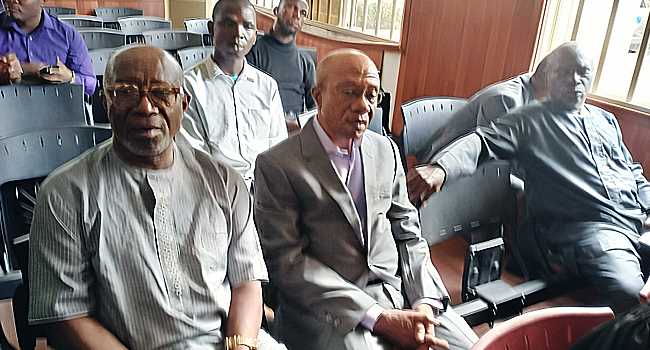Emefiele asks Appeal Court to reverse forfeiture of 753 Abuja duplexes

Godwin Emefiele, former governor of the Central Bank of Nigeria (CBN), has approached the Court of Appeal to challenge the interim and final forfeiture of 753 duplexes located in Abuja.
In an appeal dated April 30, 2025, Emefiele argued that the forfeiture orders were granted “without proper evidence”.
In December 2024, the Economic and Financial Crimes Commission (EFCC) secured the final forfeiture of the estate, following a ruling delivered by Justice Jude Onwegbuzie of the FCT High Court.
The EFCC described the confiscation as its “largest single asset recovery” since its establishment in 2003. While the agency did not name the individual linked to the estate, it noted that the property belonged to a “former top brass of the government”.
Initially, the estate was associated with a company that later denied ownership.
However, Emefiele, through his lawyer A.M. Kotoye, filed a motion seeking to be joined in the matter as an interested party.
In April, Emefiele approached the FCT High Court with an application to reclaim the forfeited properties. He also sought an extension of time to set aside both the interim and final forfeiture orders issued in December 2024.
Emefiele contended that he was unaware of the entire process and claimed that the EFCC had published the interim forfeiture notice in an “obscure” part of a newspaper, which prevented him from responding promptly.
However, Justice Onwegbuzie dismissed the application. He ruled that Section 17(2) of the Advance Fee Fraud and Other Fraud-Related Offences Act, 2006, outlines the statutory requirements for forfeiture notices.
The judge rejected Emefiele’s argument about the obscurity of the publication, stating that “the half-page notice in a national newspaper was sufficient and could not reasonably be described as ‘hidden’.”
Following the final ruling, the EFCC handed over the forfeited estate to the Federal Ministry of Housing and Urban Development.
According to Punch, Emefiele has now told the appellate court that the trial judge failed to properly consider the affidavit and supporting documents presented before the court.
“The entire ruling is a miscarriage of justice,” Emefiele argued.
“The failure of the trial judge to properly evaluate the affidavit and documents before him is perverse and has caused a miscarriage of justice.
“The orders were made in breach of the 1999 Constitution and are therefore null and void.”
Emefiele also insisted that he holds both legal and equitable interests in the estate, contrary to the court’s position that he failed to present proof of ownership.





